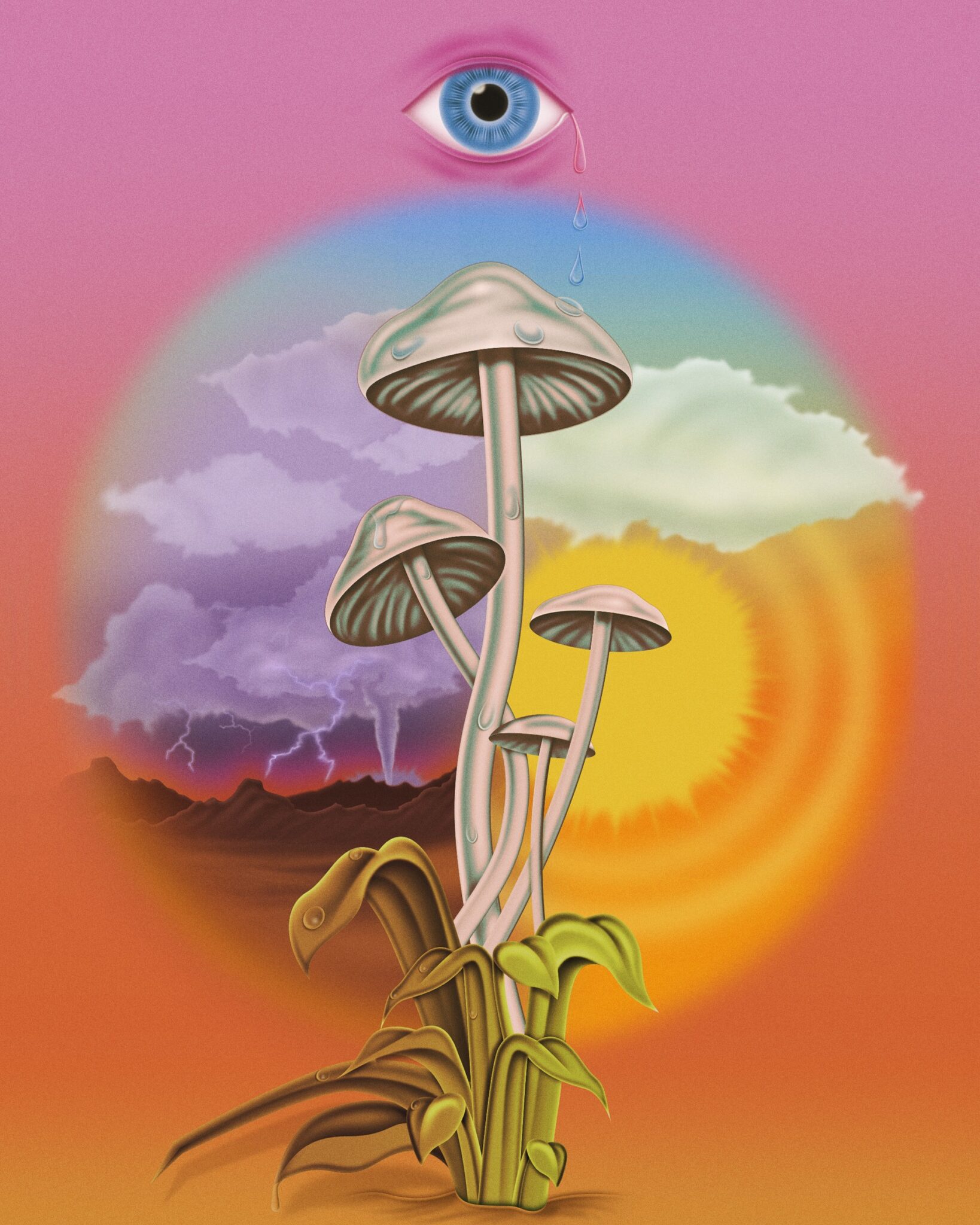
In recent years, the resurgence of interest in psychedelics has sparked a profound dialogue about their therapeutic potential and their impact on personal identity. With an increasing body of research backing their efficacy in treating various mental health disorders, psychedelics have emerged as a focal point in psychological studies. Central to this discussion is the concept of the “narrative self,” which represents how individuals construct their personal identity through stories and experiences. This article will delve into the mechanisms of psychedelics, explore the concept of the narrative self, and examine how psychedelics can facilitate transformative changes in this aspect of human experience.
How Psychedelics Work

Psychedelics, substances like psilocybin (found in magic mushrooms), LSD, and DMT, operate primarily by altering brain function and chemistry. Here are the key mechanisms through which they exert their effects:
Serotonin Receptors: Psychedelics primarily target the serotonin 5-HT2A receptors in the brain, leading to altered perceptual experiences and mood changes.
Default Mode Network (DMN): Research indicates that psychedelics reduce activity in the DMN, a network associated with self-referential thoughts and the construction of the ego.
Increased Connectivity: They promote communication between different areas of the brain, often resulting in a breakdown of conventional thought patterns and an expansion of consciousness.
The combination of these effects can lead to profound experiences of connectivity, altered states of consciousness, and even mystical experiences, which may contribute to their therapeutic potential.
What is the Narrative Self?

The narrative self is a psychological construct that refers to how individuals create and maintain their identities through personal stories and life experiences. This narrative encompasses:
Life Stories: The compiled interpretations of experiences that individuals use to make sense of their past.
Cohesion and Continuity: The personal narrative provides a sense of stability and continuity over time, allowing people to navigate their lives based on an integrated sense of who they are.
Narrative Complications: Negative experiences, traumas, or unprocessed memories can disrupt this narrative and lead to feelings of disconnection or existential distress.
Understanding the narrative self is crucial for psychological well-being; a coherent narrative can foster resilience, growth, and a sense of belonging.
How Psychedelics Affect the Narrative Self

The intersection of psychedelics and the narrative self presents a fascinating dynamic in the pursuit of personal identity and psychological healing. Here are several ways psychedelics can influence the narrative self:
Accessing Repressed Memories: Psychedelics can facilitate access to suppressed thoughts and feelings. This process may help individuals confront unresolved trauma, allowing them to rewrite their narratives in a more empowering way.
Dissolution of Ego: The ego, an integral component of the narrative self, may soften or dissolve during a psychedelic experience. This provides individuals with a unique perspective on their identity, helping them understand that their self is not limited to personal narratives defined by fear or past trauma.
Enhanced Introspection: Psychedelics can enhance self-reflection, enabling individuals to reevaluate their life stories. This newfound perspective can lead to insight and clarity about one’s beliefs, values, and experiences.
Connectedness: Many users report feelings of unity with others and the universe during psychedelic experiences. This sense of interconnectedness can significantly shift one’s understanding of self, promoting empathy and reducing feelings of isolation.
Therapeutic Applications

As research into psychedelics continues to grow, several therapeutic applications are emerging that can support the narrative self:
Psychedelic-Assisted Therapy: Integration of psychedelics within traditional therapeutic frameworks can substantially enhance emotional healing, allowing individuals to reframe their personal narratives.
Group Therapy: Shared psychedelic experiences can create community bonds, fostering a collective narrative of support and belonging.
Trauma Resolution: For survivors of trauma, psychedelics may provide a means to revisit painful memories safely, altering their perception of those events and incorporating them into a more empowering narrative.
Conclusion

Psychedelics hold profound potential for redefining our understanding of the narrative self. By unlocking access to repressed memories, softening the ego, and enhancing introspection, these substances can facilitate transformative experiences that rewrite personal narratives. As the therapeutic applications continue to unfold, it is vital to approach this intersection with caution, ethics, and a commitment to scientific inquiry. With further exploration, psychedelics could indeed reshape our understanding of the self, offering pathways to healing and growth that transcend conventional approaches to mental health. The future of psychedelic research not only illuminates new avenues for therapy but challenges us to rethink the very essence of who we are.





